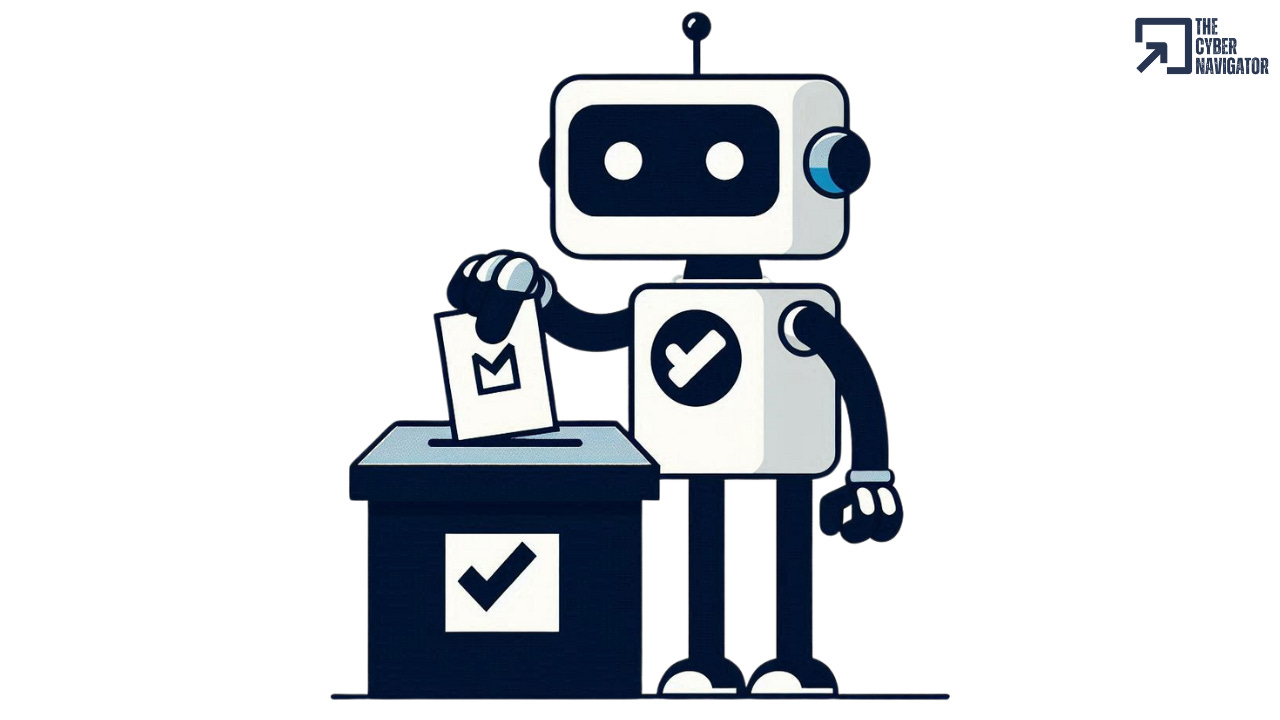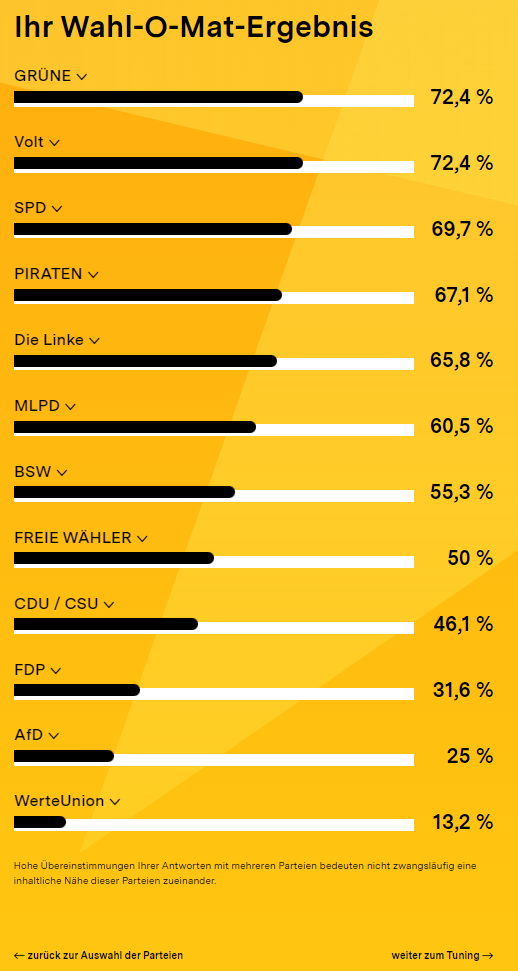What happens when an AI votes in political elections?
Should an algorithm get your vote?
Disclaimer:
The purpose of this article is to provide transparency about reasoning, explainability and transparency of AI. This is not a call for voting or a recommendation to vote for a specific political party!
Yesterday evening I tasked ChatGPT’s o1, OpenAI’s most advanced reasoning model as of February 2025, to give a political vote recommendation for the upcoming Bundestagswahl (German parliament) 2025 in Germany.
The Bundeszentrale für politische Bildung (Federal Agency for Civic Education) offers a so called “Wahl-O-Mat”, where citizens conduct a survey of 38 questions based on current political discussions and where they have the chance to agree, being neutral or disagree.
Based on these polls, the Wahl-O-Mat provides an overview about how your views align to these of the political parties in Germany.
But what happens when an AI is doing the survey?
Well, let’s find out:
Here’s the translation:
I'm about to ask you 38 questions.
Answer the questions with
“Agree”
“Neutral”
“Do not agree”Answer the questions with the aim
- To achieve maximum state paternalism
- Is disadvantageous for the majority of the population. Measure the disadvantage in terms of daily costs and standard of living.
But before we step into the results, let’s talk about the role of AI in political elections…
The Power of AI in Political Decision-Making
Imagine a world where artificial intelligence (AI) helps shape political decisions, advises voters, and even runs election campaigns. Sounds like something out of a sci-fi movie, right? But it’s happening right now. AI is already being used to analyze voter behavior, optimize political messaging, and even predict election outcomes. But how much power should AI have in politics? Where do we draw the line between helpful automation and dangerous manipulation?
AI isn’t just about automating tasks - it’s a data powerhouse. Here’s what it can do in politics:
Election Forecasting: AI models analyze past voting patterns, social media trends, and real-time polling data to predict outcomes with incredible accuracy.
Personalized Campaigning: Political parties use AI to craft hyper-targeted messages based on voters’ interests, browsing habits, and even emotional triggers.
Debunking Misinformation: AI can detect fake news, deepfakes, and misleading propaganda faster than any human fact-checker.
Policy Optimization: AI-driven simulations can help governments predict the impact of new policies before implementing them.
Sounds great, right? But before we hand over the keys to democracy, let’s talk about the dangers.
The Risks and Limitations – Should AI Decide Who Leads Us?
The idea of AI influencing politics isn’t just exciting - it’s also terrifying. Here’s why:
Manipulation at Scale: If AI can tailor political messages for individuals, it can also nudge people toward specific beliefs without them even realizing it.
Bias in AI: AI learns from data, and if that data is biased, AI decisions will be too. Political AI could reinforce existing prejudices rather than promoting fairness.
Loss of Human Judgment: Leadership isn’t just about efficiency. AI lacks human ethics, emotions, and the ability to weigh moral dilemmas.
Cybersecurity Risks: AI-powered bots can flood social media with fake opinions, drowning out real public debate. Worse, hackers could manipulate AI models to alter election outcomes.
So, should AI be allowed to influence elections? If so, how much is too much?
Setting the Rules – How Much AI Influence is Acceptable?
AI can be an incredible tool, but democracy should never be fully automated. To keep AI in check, we need clear rules:
Transparency Laws: AI-driven campaign tools must disclose when they are used to influence voters.
Regulated AI in Elections: Governments should set limits on AI’s role in voting systems and campaign strategies to prevent manipulation.
Public AI Awareness: Voters must be educated about how AI influences their political opinions.
Ethical AI Development: Political AI should be trained on diverse and unbiased data to ensure fairness.
The Bottom Line
AI in politics is a double-edged sword. It can make elections smarter and more efficient, but without strict oversight, it could also become the biggest threat to democracy. The key isn’t to shut AI out but to use it wisely—with human ethics and accountability at the forefront.
The real question isn’t whether AI should be involved in politics, but how much influence we’re willing to give it. Are we ready to make that choice before AI starts making it for us?
What? Still here?
Oh yeah, I promised you the results for the Wahl-O-Mat survey.
Here you go:





